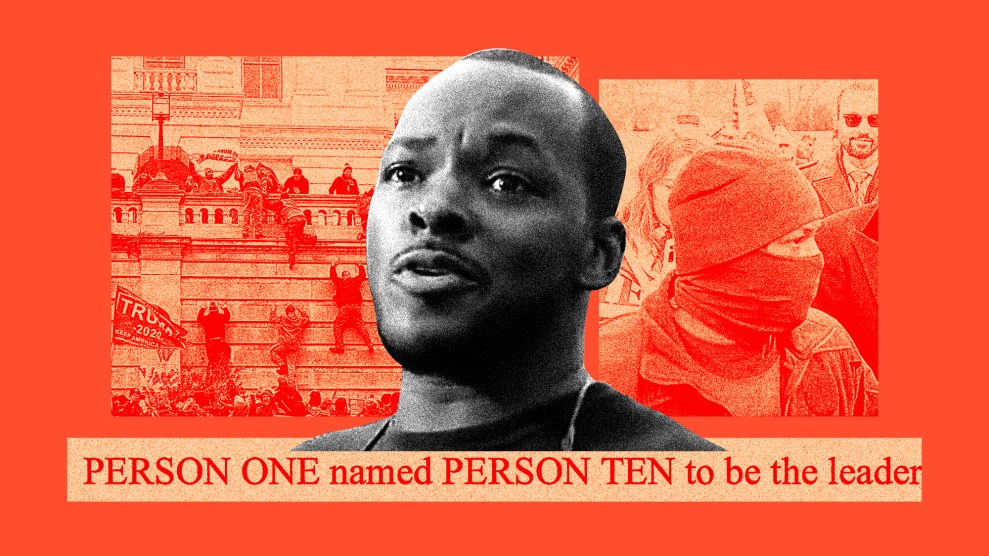
Stewart Rhodes, founder of the Oath Keepers, speaks during a rally outside the White House in Washington, June 25, 2017.Susan Walsh/AP
The leader of the far-right Oath Keepers, who was convicted of seditious conspiracy last year, received an 18-year prison sentence Thursday following a hearing in which he defended his role in the January 6 attack.
“I’m a political prisoner,” Stewart Rhodes said at his sentencing. “And like President Trump, my only crime is opposing those who are destroying our country.”
Rhodes, a Yale law graduate, also likened himself to “the lead character in Kafka’s The Trial” and to a famed Soviet dissident, saying he aims to become “an American Solzhenitsyn to expose the criminality of this regime.”
U.S. District Court Amit Mehta responded to some of Rhodes’ claims before sentencing him. “You are not a political prisoner, Mr. Rhodes,” Mehta said. “You are not here for your beliefs or because Joe Biden is president.”
“You stand convicted because 12 jurors in DC, who acquitted you of multiple counts, found you guilty of sedition,” the judge said. “That was a jury of your peers.”
Mehta agreed to classify Rhodes’ crimes as terrorism against the government, a decision that increased the sentence the far-right leader received.
“What we cannot have — we absolutely cannot have — is a group of citizens who because they didn’t like the [election] outcome were then prepared to take up arms in order to foment a revolution,” Mehta said.
“You, sir, present an ongoing threat and a peril to this country, to the republic and to the very fabric of our democracy,” Mehta added, noting that Rhodes’ intelligence and ability to compel followers to act “makes you dangerous.”
Rhodes is one of 14 people, all affiliated with the Oath Keepers or the neo-fascist Proud Boys, who have been convicted of the symbolically important charge of seditious conspiracy. He is the first to be sentenced following trial. His prison term is the longest handed out so far related to January 6. Mehta on Thursday also sentenced Florida Oath Keeper Kelly Meggs, who was convicted of seditious conspiracy alongside Rhodes last year, to 12 years in prison.
Rhodes did not enter the Capitol on on January 6, but prosecutors successfully argued that members of his organization joined in the attack as part of a conspiracy Rhodes led to use violence to help Trump remain in office despite his election defeat.
“We aren’t getting through this without a civil war,” Rhodes wrote in an Oath Keepers Signal chat two days after the election. “Prepare your mind body and spirit.” Even after January 6, Rhodes told an associate that he wished the attack had been more violent. “My only regret is that they should have brought rifles,” Rhodes said. “We could have fixed it right then and there. I’d hang fucking Pelosi from the lamppost.”
It remains to be seen how long Rhodes will remain imprisoned. Trump has said he will consider pardoning a “large portion” of the people convicted of crimes connected to January 6, including people convicted of sedition. Rhodes said Thursday that he hopes Trump wins in 2024.
Update, May 25: This article has been updated to note Kelly Meggs’ sentencing.















